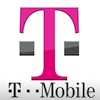After five generations of the iPhone (and a sixth generation coming soon), T-Mobile remains the last major U.S. wireless carrier not to offer the iPhone. There are a number of reasons why the carrier hasn’t been allowed to carry the iPhone so far – but could T-Mobile finally carry the iPhone this time around?
 Against a T-Mobile iPhone
Against a T-Mobile iPhone
One of the main reasons T-Mobile hasn’t been able to offer the iPhone to their customers so far is that T-Mobile uses a unique set of 3G frequencies which aren’t used by other carriers. As we’ve explained in the past:
T-Mobile Uses Different 3G Frequencies
While unlocked iPhones can function on T-Mobile’s network, they can only operate at 2G “Edge” speeds. This is because T-Mobile uses unique frequencies for their 3G and “4G” connections which simply aren’t in widespread use. There is some reason to think that Apple has tested iPhones on T-Mobile’s network in the past, but has decided for whatever reason not to proceed with offering the device on their network.
T-Mobile uses a rare set of frequencies called AWS (Advanced Wireless Services). This band is unique, because it operates between two different frequencies – half in the 1700 MHz (1.7 GHz) and half in the 2100 MHz (2.1 GHz) frequencies. Because no other major providers use these frequencies, Apple simply hasn’t built support for them into the iPhone.
That being said, the iPhone does work over T-Mobile’s 2G “Edge” network (there are over a million iPhones in use on T-Mobile), and the carrier has been hard at work adding iPhone-ready 3G to their network. The carrier also has plans to support LTE in the future.
Even so, Apple likely considers the current lack of full iPhone-compatible 3G coverage in most areas as something that would diminish the iPhone experience for users – customers may blame slow data speeds or the lack of simultaneous voice and text on the iPhone rather than the network.
A Glimmer of Hope?
T-Mobile recently announced it will be bringing back unlimited data plans in early September, possibly in an attempt to lure iPhone customers to their network, and recent leaks suggest they have been preparing 4G Micro SIMS to enable iPhone to take advantage of the fastest iPhone-compatible 3G that they offer (even if it is very geographically limited). They even placed an iPhone-compatible 3G node at Apple’s WWDC conference this year.
There’s also the matter of a leaked internal memo from T-Mobile that surfaced earlier today suggesting that the carrier plans to “sell against the iPhone” starting on September 21 (the next iPhone’s rumored release date). While many have taken this memo as a sign that T-Mobile still won’t be getting the iPhone, I’m not convinced.
First, the wording of that leaked memo is a bit odd. Why would T-Mobile instruct their employees to “sell against the iPhone” if they don’t even offer it? It seems like a meaningless instruction – they would just continue selling phones as normal. How can you “sell against” something that you don’t even have, unless it just means they’re supposed to talk smack about the iPhone to try and get users to purchase their devices. But why would someone considering an iPhone be talking to T-Mobile anyway?
It’s also quite unclear whether that leak is even authentic at all – and Apple has tested the iPhone on T-Mobile’s network in the past.
T-Mobile CEO Phillip Humm noted earlier this year that many cellular radio chips now support T-Mobile’s unique 3G spectrum, and T-Mobile CTO Neville Ray went so fay as to say that the next-gen iPhone will indeed support T-Mobile’s 3G network.
Whether or not Apple’s upcoming iPhone will support T-Mobile is unclear – but there is definitely reasoning on both sides of the matter. It’s not a hopeless situation. Even if the iPhone doesn’t come to T-Mobile on September 21, it very well might come sometime afterward as T-Mobile’s network becomes more compatible with the device.
As usual, all of the cards are in Apple’s hands. We’ll just have to wait and see how it all plays out!


